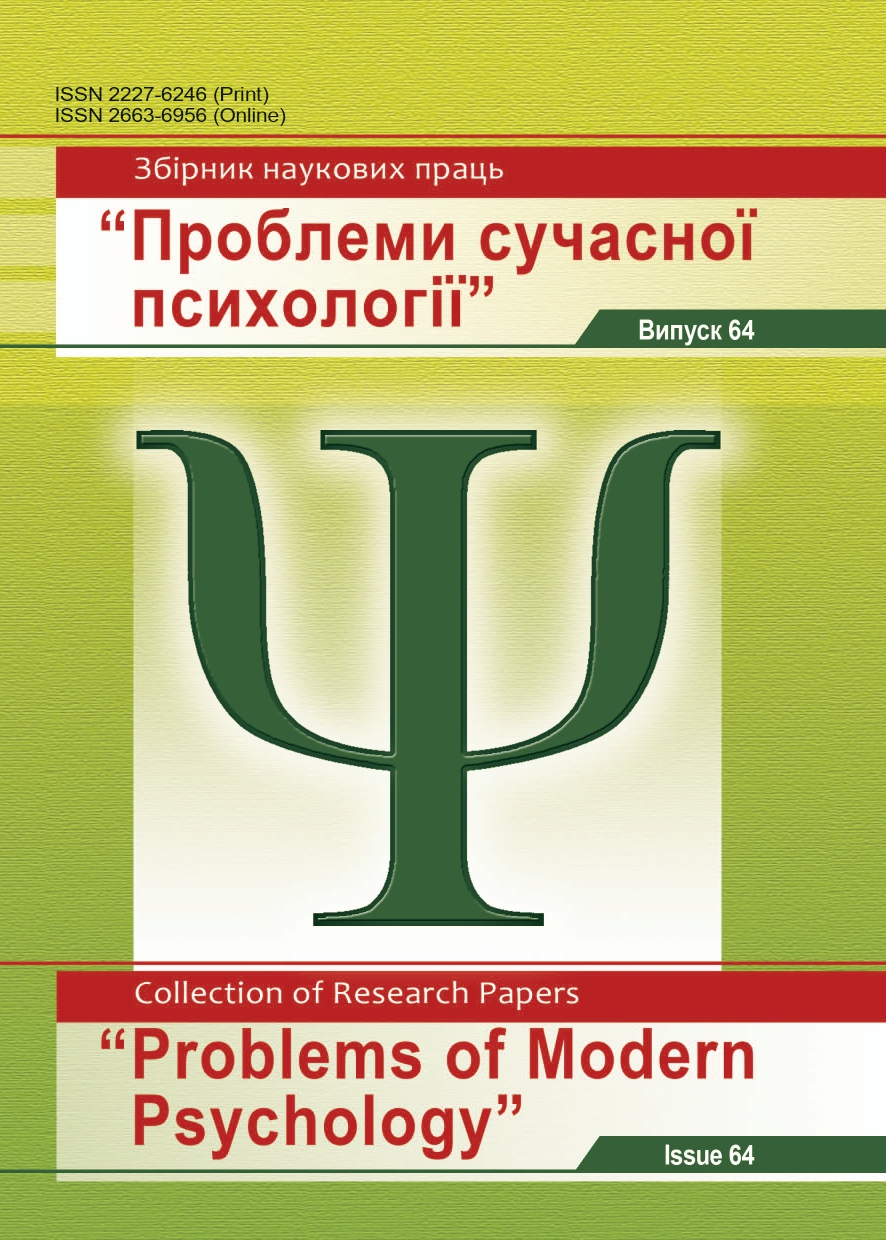Psychological Peculiarities of Use of Dialogical Forms of Control of Knowledge, Skills and Abilities of Students at the Lessons of the English language
DOI:
https://doi.org/10.32626/2227-6246.2024-64.201-224Keywords:
dialogical forms, knowledge, skills, abilities, communication, emotional openness, personal openness, trustworthinessAbstract
The aim of our research is to show psychological peculiarities of use of dialogical forms of control of knowledge, skills and abilities of students at the lessons of the English language.
Methods of the research. The following theoretical methods of the research were used to solve the tasks formulated in the article: a categorical method, structural and functional methods, the methods of the analysis, systematization, modeling and generalization. The experimental method was used as the method of organizing empirical research.
The results of the research. So, we single out the main norms and principles of organizing dialogic influence: emotional and personal openness of partners of communication; psychological orientation to actual conditions of each other; trustworthiness and openness of expression of the person’s feelings and states. Therefore, in the process of a dialogue two personalities begin to form a common psychological space and time span, forming an emotional “being together”, in which interaction in general, object, monologic sense no longer exists, and in its place a psychological unity of subjects appears. Such conditions of the existence of people contribute to the development of their creativity and the disclosure of the personality.
Conclusions. We proved that a Dialogue has a positive effect on the emergence and development of contacts between people. We believe that a dialogue is the highest level of the organization of communication, because it is characterized by a positive personal attitude of subjects to each other, their “open” address and behavior towards partners of communication. It is indisputable that a dialogical interaction between a teacher and a student in the process of schooling stimulates internal dialogues in the minds of partners of communication, which in turn has a positive effect on the mental and personal development of students.
Downloads
Published
How to Cite
Issue
Section
License
Copyright (c) 2024 Mykhalchuk Nataliia, Koval Iryna

This work is licensed under a Creative Commons Attribution-NonCommercial 4.0 International License.
Copyright
The Editorial Board has the full right to publish original scientific papers containing results of theoretical and experimental research works which are not currently subject to review for publication in other scientific editions. The Author shall transfer to the editorial board of the Collection the right to spread the electronic version of the paper, as well as the electronic version of the paper translated into English (for papers originally submitted in Ukrainian and Russian) by all kinds of electronic means (placement at the official website of the Collection, electronic databases, repositories etc).
The Author of an article reserves the right to use materials of the paper, without approval with the editorial board and the founders of this Collection: a) partially or fully, for educational purposes; b) for writing own dissertation papers; c) for preparation of abstracts, conference reports and presentations.
The Author of an article can place electronic copies of the paper (including the final electronic version downloaded from the official website of the Collection) at:
- personal web resources of all Authors (websites, webpages, blogs etc.);
- web resources of the institutions where the Authors are employed (including electronic institutional repositories);
- non-profit public access web resources (for example, arXiv.org).
But in all cases, it is obligatory to have a bibliographic reference to the paper, or a hyperlink to its electronic copy placed at the official website of this Collection.






